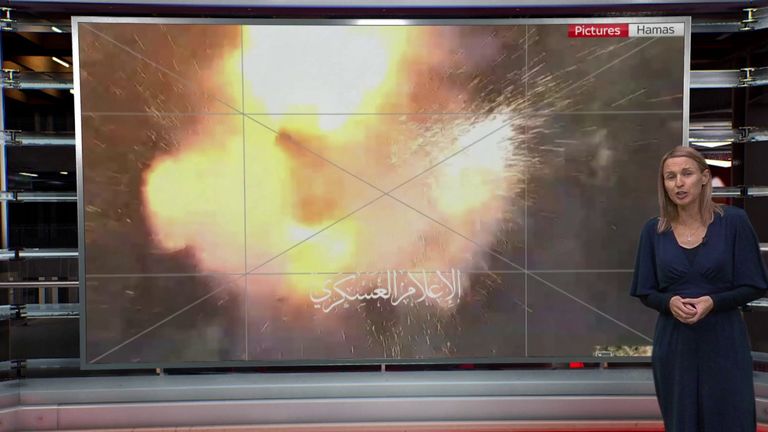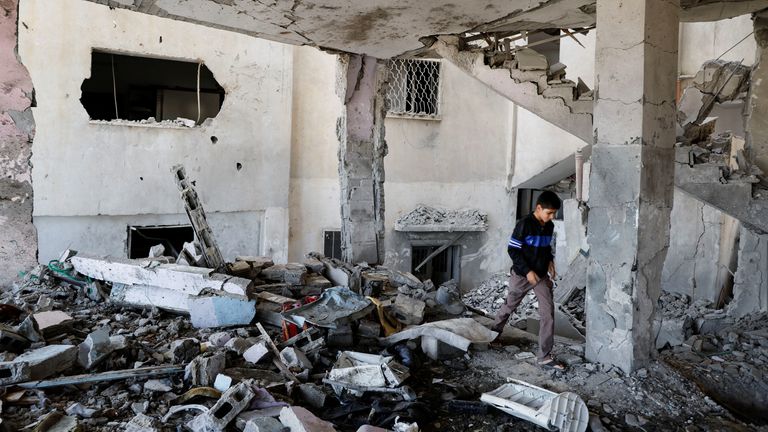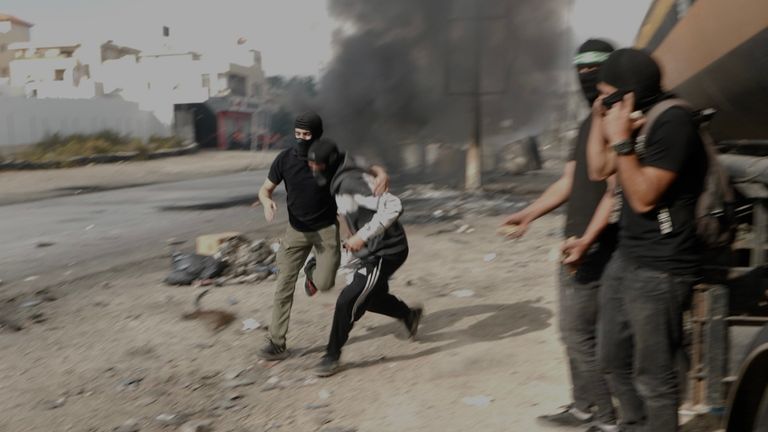:quality(70):focal(3135x1963:3145x1973)/cloudfront-eu-central-1.images.arcpublishing.com/irishtimes/Z3BNQQT7ISEXDYCK5DZIRZKNPQ.jpg)
Calls by states to categorise Israeli action in Gaza as genocide are increasing amid appeals for an immediate action to end the carnage. Critics of the Israeli response to the brutal attack by Hamas, which range from the United Nations to Brazil, South Africa and Colombia, have invoked a range of international crimes – genocide, war crimes and crimes against humanity, including ethnic cleansing.
This highlights the urgent need for clarity around what these terms – referred to collectively as atrocity crimes – mean. They are regarded as international crimes primarily because in the past they often went unpunished and were often perpetrated by governments, or with government complicity. Today they are firmly part of international law, and humanity as a whole is seen as the victim.
The term “genocide” was first used in 1944 by an academic of Polish-Jewish origin, Raphael Lemkin, in his book on Nazi crimes in occupied Europe. Later, the UN General Assembly adopted the Convention on the Prevention and Punishment of the Crime of Genocide in 1948, primarily inspired by the extermination of European Jews by the Nazi regime. Article 1 of the convention establishes a general obligation on states that have ratified the convention to prevent and punish genocide. Little heed has been paid to this obligation.
[ Ireland ‘can and should’ refer Israeli actions in Gaza to ICC, Sinn Féin says ]
[ Thousands march through Dublin in support of Palestine amid conflict in Gaza ]
The convention defines genocide as specific acts intended to destroy “a national, ethnical, racial or religious group, as such”. These acts include killing members of the group, causing serious bodily or mental harm, and imposing conditions on the group calculated to destroy it. The distinguishing feature of genocide is the intent to destroy the group – and this requirement to demonstrate intent is the most significant legal obstacle to prosecuting this offence.
Deportation or forcible transfer of a population are examples of crimes against humanity and are often referred to as ethnic cleansing
A recent example of ethnic cleansing was the effective expulsion of Armenians from Nagorno-Karabakh following a short but intense military campaign by Azerbaijan last September. This received little media attention but is generally not considered to have amounted to genocide, owing to lack of evidence of an intent to destroy the Armenian population. Nonetheless, the consequences for an estimated 100,000 Armenians driven from their homes have been profound.
The legal definition of genocide has been rightly criticised as too narrow in terms of the groups protected, and of giving rise to a significant evidential burden for proving genocidal intent. Nevertheless, it has been incorporated into a range of international treaties since 1948, most recently the Statute of the International Criminal Court. A number of individuals have been prosecuted for genocide before the international tribunals for the former Yugoslavia, Rwanda and Cambodia. Recent cases before the International Court of Justice concerning allegations of genocide include proceedings in relation to the treatment of the Rohingya in Myanmar and those taken by Ukraine against Russia. A UN commission of inquiry on Syria considered the crimes perpetrated by Islamic State against the Yazidis as genocide, while in Sudan today civilians are at risk from resurgent conflict resembling the earlier Darfur genocide.
The UN Special Adviser on the Prevention of Genocide has warned about the heightened risk of genocide and related atrocity crimes in Ethiopia.
Following Russia’s invasion of Ukraine, western officials were quick to depict the Kremlin’s actions as “genocidal”. US president Joe Biden invoked the term in April 2022 in the context of Russia’s mass killing of civilians in the town of Bucha and the extensive bombardment of Mariupol, a city where thousands are believed to have been killed. Russian officials, at the time, blamed Ukraine’s military for using its civilians as “human shields”. The US policy in particular is in stark contrast to that taken in respect of Gaza.
[ Israel-Hamas war: Al-Shifa Hospital patients and staff leave the compound, Gaza health officials say ]
[ Israel-Hamas war: Only minor obstacles to hostage deal remain, Qatari PM says ]
How does all of this apply to what is currently happening in Gaza? There is a growing clamour of voices accusing Israel of war crimes, crimes against humanity, ethnic cleansing and genocide. Crimes against humanity – which include ethnic cleansing – are closely related to genocide. While some of the underlying acts for genocide can also be considered as crimes against humanity or war crimes, the challenge with genocide is proving the intent to destroy the Palestinian population of Gaza.
Article 7 of the Statute of the International Criminal Court defines crimes against humanity as certain acts committed as part of a widespread or systematic attack directed against any civilian population. The attack need not be a military operation, but must involve a course of conduct involving the multiple commission of crimes targeting any civilian population. It must also be carried out pursuant to, or in furtherance of, a state or organisational policy.
A group of UN experts has recently warned that there is an ongoing campaign by Israel resulting in crimes against humanity in Gaza
Deportation or forcible transfer of a population are examples of crimes against humanity and are often referred to as ethnic cleansing. This may be defined as rendering an area ethnically homogeneous by using force or intimidation to remove from a given area persons of another ethnic or religious group. Settlement expansion and violence have led to increased claims of ethnic cleansing in the Occupied Palestinian Territory.
A group of UN experts has recently warned that there is an ongoing campaign by Israel resulting in crimes against humanity in Gaza. Considering statements made by Israeli political leaders such as the defence minister Yoav Gallant – “We are imposing a complete siege on [Gaza]… We are fighting human animals, and we act accordingly” – accompanied by military action in Gaza and escalation of arrests and killing in the West Bank, there is also a risk of genocide against the Palestinian people.
The crime of direct and public incitement of genocide also falls within the jurisdiction of the International Criminal Court, which has an active investigation at present. The dehumanising language used by Israeli government officials – combined with the sheer number of Palestinian casualties, mass destruction and displacement – points to possible genocide. Significantly, following the attack by Bosnian Serb forces on the Muslim population at Srebrenica in 1995, it was established that genocide may be committed in a small geographic area such as Gaza against only part of a group. Hamas has also been accused of genocide.
Whatever the categorisation of the crime, international law is only useful if states abide by it. These laws encourage everyone to view one another and each other’s communities as fundamentally human and worthy of dignity and protection. International humanitarian law in particular requires that all parties during armed conflict ensure respect for and protection of the civilian population and civilian objects.
This is clearly not happening in Gaza. Ensuring accountability remains a major challenge for proponents of international law. When international law is violated, there must be sanction and accountability. If other states and individuals stand by and do not call out atrocities for what they are, we are all complicit.
Dr Ray Murphy is a professor at the Irish Centre for Human Rights in the school of law, University of Galway



:quality(70):focal(3135x1963:3145x1973)/cloudfront-eu-central-1.images.arcpublishing.com/irishtimes/Z3BNQQT7ISEXDYCK5DZIRZKNPQ.jpg)


